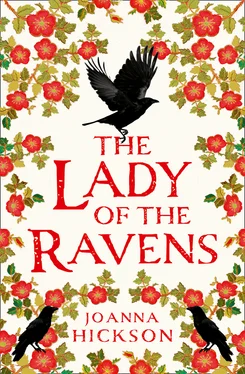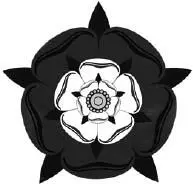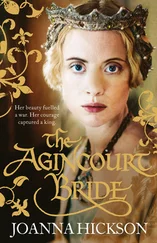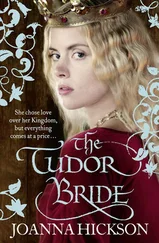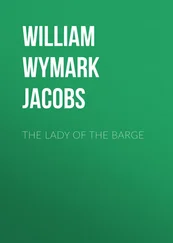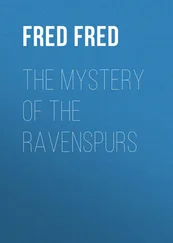Martin Steward – a senior Guildford servant
Hugh – a scullion training as a server
Luce – a Guildford maidservant
Jake – the Guildford cook
Wynkyn de Worde – printer at Caxton’s Westminster press
Mistress Wood – governess to the Guildford children
Sir John Digby – Lieutenant Constable of the Tower of London
Lettie Stock – a London midwife
Mistress Strood – a Kent farmer’s wife & breast nurse to baby Hal
Hetty Smith – a maidservant from the Kent village of Rolvenden
Sir Robert Poyntz – a landed knight, husband of Meg Woodville
Anthony Poyntz – their eldest son
Jane Howell – governess to Prince Henry & former nurse to King Henry
Mistress Brook – 2nd governess to the Guildford children
Deceased characters:
Queen Marguerite – Marguerite of Anjou, wife of King Henry VI the last Lancastrian King of England
Edward (Édouard), Prince of Wales – their son
Sir William Vaux – Joan’s father
Edward IV – Yorkist king who deposed Henry VI
Prince Edward of York & Prince Richard of York – The Princes in the Tower, deaths unknown
Richard of Gloucester – Richard III (the usurper), Edward IV’s brother
Anne Pympe – Sir Richard Guildford’s 1st wife
Anthony Woodville, Earl Rivers – executed on Richard III’s orders (father of Meg Poyntz)
1

THE CART RUMBLED PAST so close that it almost killed me. I was forced to flatten myself against the gatehouse wall or I would surely have been crushed before I had even entered the Tower of London. Limewash and mortar flaked off the masonry, smearing my gown with white dust. Then suddenly, above the diminishing sound of rolling wheels and clattering hooves, I heard the rasping ‘kwaark’ of a raven and a childhood memory rushed in to swamp my senses. I became my nine-year-old self, trembling under the gaze of a large black bird with a bill like the hook of a soldier’s halberd and an eye that could pierce the soul. Then that fearsome beak had opened to emit a hoarse cry, bringing tears to my eyes, and I heard the gravelly voice of my escort, an elderly knight from the Tower’s garrison.
‘Think yourself honoured, young mistress. The ravens avoid us men because the archers use them for target practice. But there is a legend, which says that as long as they haunt the Tower, it and the kingdom will stand. Just lately they’ve been coming and going, so perhaps there’s something in it.’ At the time I didn’t understand what he meant but so vividly had the raven’s image imprinted itself in my mind, that the incident and his words had remained with me ever since.
Now thirteen years later another cart, heaped high and shedding fragments of its cargo as it juddered over the cobbles, made me press even harder against the wall and my heart thudded as a real raven was suddenly there at my feet, rushing in with a triumphant flap of feathers to peck up a speck of shiny discarded metal that glimmered in the gatehouse gloom. My daydream dissolved into reality. The carts were carrying gold and silver scrap to the Royal Mint and the raven scampered away with its booty, rising on beating wings as it cleared the archway. Hastening into the daylight, I watched it carry off its treasure, to secrete it somewhere high on the battlements.
I stood transfixed, admiring its fluid, swooping flight until an angry shout from behind alerted me. ‘Hey! Clear the way! D’you want to get killed?’ I jumped to the side again as another laden cart trundled past, the driver red-faced and yelling. ‘God’s blood, woman! There’s no room for stupid skirts in here.’
Fearing more vehicles, I made a run for the gate at the other end of the moat bridge and took refuge through a door in an adjacent building, which I knew should contain the office of the man in charge. I felt in the purse on my belt and removed the letter within.
‘Tell me, what business can a female possibly have in a military fortress?’ The young Lieutenant Constable was hook-nosed and handsome, with all the hubris of noble privilege and not a hint of charm. He had given my letter barely a glance.
‘I am on royal business, sir, as the letter says.’ I held out my hand. ‘May I have it back? I know where I am going.’
His eyes scanned the page and rested on the signature at the bottom. ‘Who is MR?’ he asked, refolding the note and handing it to me.
I could have remarked that he should know but I desisted. ‘Margaret, Countess of Richmond, is the king’s mother – MR is her cypher.’ Knowing the lady well, as I did, I reflected that it could equally be a monogram for ‘Margaret Regina’ but resisted the temptation to point this out.
He did not respond verbally but his curled lip and disapproving sniff were revealing. It was only weeks since Lady Margaret’s son, Henry Tudor, had taken the throne ‘by right and conquest’, to become King Henry the Seventh of England and there were still plenty of dissenting Yorkists among minor royal officials. I didn’t give this one many more days in his present post.
As I hurried along the narrow street between the twin curtain walls that defended the fortress from a river attack, I couldn’t resist searching for more signs of ravens on the battlements of the main keep, which reared above me to my left. These enigmatic birds had haunted my dreams ever since I had made that first fearful childhood trip to the Tower to visit my mother. Whatever the men had said about it being no place for women, I could have begged to differ. My mother, Katherine Vaux, had lived within its intimidating walls for two years and the captive lady she had served there had once been Queen of England.
My grandfather, a doctor from Piedmont, had been physician to the Duke of Anjou’s family and in her childhood my mother had been invited to join their schoolroom. When the duke’s daughter Marguerite married King Henry the Sixth of England, she had travelled with her to his court and later married one of his household knights, Sir William Vaux, becoming an English citizen. When civil war erupted and Edward of York snatched the throne, forcing King Henry and Queen Marguerite to flee their kingdom, my loyal Lancastrian parents escaped with my young brother Nicholas to my mother’s birthplace in Piedmont. A few months later, I was born and baptised Giovanna, after my Italian grandmother.
My baptismal name may be Giovanna, but English is not a lyrical language like Italian is. Here in my mother’s adopted country I have become plain Joan; and plain is what the English think me, as I am not pink-cheeked and golden-haired like the beauties they admire. I have olive skin and dark features – black brows over ebony eyes and hair the colour of a raven’s wing. With my full lips and straight nose, many consider me odd, or probably, to put it bluntly, ugly. ‘ Jolie-laide ’ is what the French used to call me, more kindly. Perhaps that is one reason why I habitually wear dark colours and am so drawn to the big black birds that haunt the cliff-like walls of the Tower and why, as I hastened to my meeting on that late September day, I was enraged at seeing one of the sentry archers on the battlements take aim at a raven as it flew close to his position on the roof of the Royal Palace. Luckily the arrow missed its target but I was still seething while I negotiated my way past another set of guards and into the fortress’s intimidating limewashed keep, known as the White Tower.
Читать дальше
